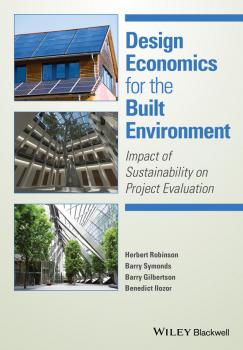Herbert Robinson
Список книг автора Herbert RobinsonGovernance and Knowledge Management for Public-Private Partnerships
The book not only gives a clear picture of the policy and strategic framework of PFI/PPP projects, the governance and knowledge management issues through different phases from planning, design development to operation and service delivery and the processes associated with each phase, but practical tools, methodologies and capabilities needed to deliver PFI/PPP projects in a range of sectors are also explained. It clearly demonstrates the key imperatives that are the hallmark of successful programmes and projects no matter what there method of funding or delivery. I have no doubt that, in undertaking the programmes and projects that I am responsible for delivering and in undertaking OGC Gateway Reviews, to support clients delivering their own programmes and projects, I will draw on the material contained in this book. —From the Foreword by Rob Smith, Director of Gateway Reviews and Estates & Facilities, Department of Health There is a growing demand worldwide for transport, healthcare, education, energy and water infrastructure. However, government resources are often insufficient to meet the needs of new projects and to upgrade existing infrastructure. Private participation in public infrastructure is therefore increasing but the respective roles of the public and private sectors are the subject of intense debate. This has led to renewed interest in public-private partnerships in developed and developing countries. Governance and Knowledge Management for Public-Private Partnerships shows how effective governance and knowledge management can improve the performance of PFI/PPP projects. It provides an in-depth understanding of different dimensions of governance and how they affect project management structure, processes, and decision-making ability of actors and teams involved in PFI/PPP projects. The role of knowledge management strategy, the need for benchmarking knowledge management efforts, specific tools and methodologies for capturing, sharing and applying knowledge to accelerate learning and capacity building are also examined. The book is essential reading for all those involved in PFI/PPP projects, including policy makers, industry practitioners, academics and students. The practical tools for governance and knowledge management it offers make this book particularly useful for consultants, contractors and client organisations.
Design Economics for the Built Environment. Impact of Sustainability on Project Evaluation
The drive towards environmentally friendly buildings and infrastructure has led to a growing interest in providing design solutions underpinned by the core principles of sustainability to balance economic, social and environmental factors. Design Economics for the Built Environment: Impact of sustainability on project evaluation presents new directions, reflecting the need to recognise the impact of climate change and the importance of sustainability in project evaluation. The aim is to provide a new approach to understanding design economics in the context of the changing policy environment, legislative and regulatory framework, and increasing economic, environmental and social pressure as result of the sustainability agenda. The book follows a structured approach from theories and principles in the earlier chapters, to the practical applications and emerging techniques focusing on value and social, economic and environmental considerations in making design decisions. It starts with the policy context, building on various theories and principles such as, capital cost, value of design and resource-based theories, the new rules of measurement (NRM) to explore cost planning, the relationship between height and costs, key socio-economic and environmental variables for design appraisal, eco-cost/value ratio (EVR), whole life theory and the treatment of carbon emission as external costs, productivity and efficiency, fiscal drivers and legal framework for carbon reduction, procurement and allocation of risks in contracts. Case studies, practical examples and frameworks throughout reinforce theories and principles and relate them to current practice. The book is essential reading for postgraduate students in architecture, building and quantity surveying and is also a valuable resource for academics, consultants and policy-makers in the built environment.

